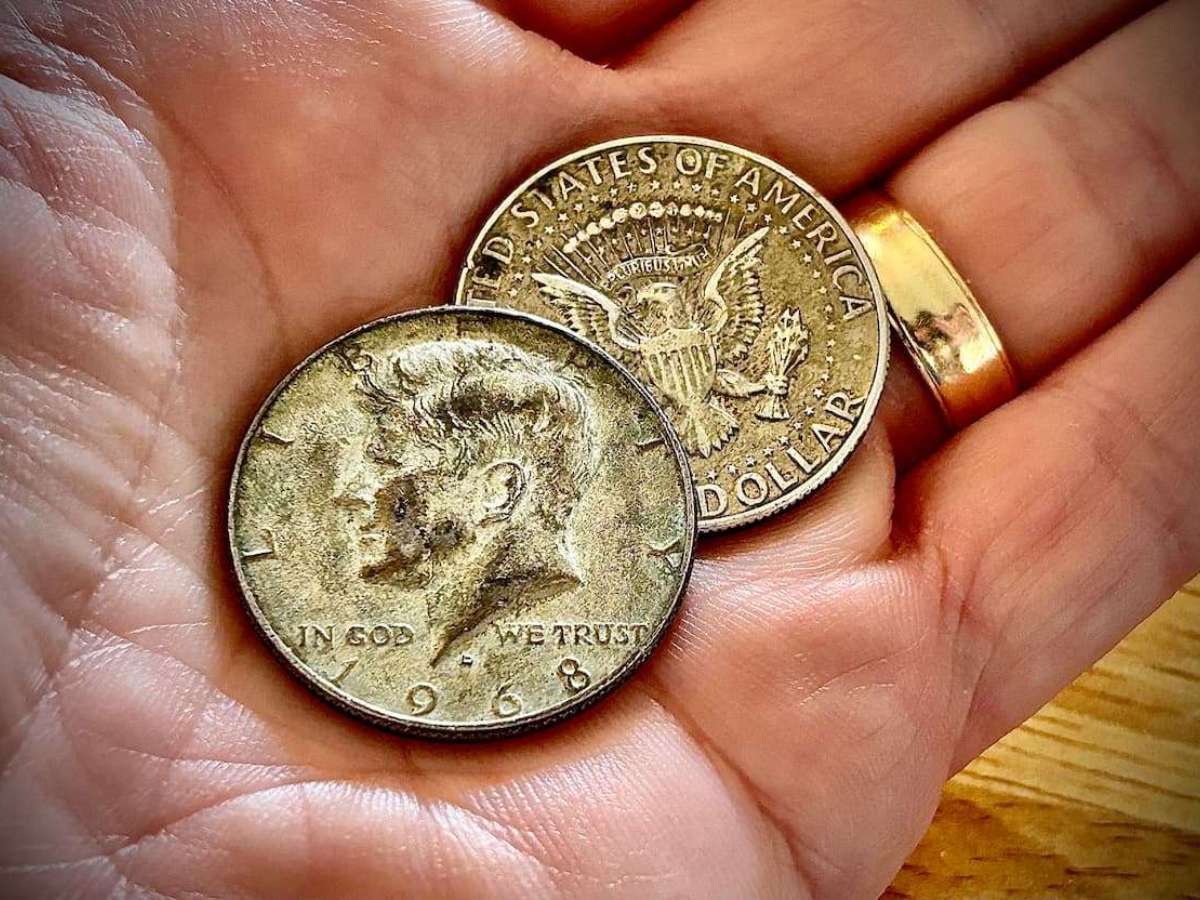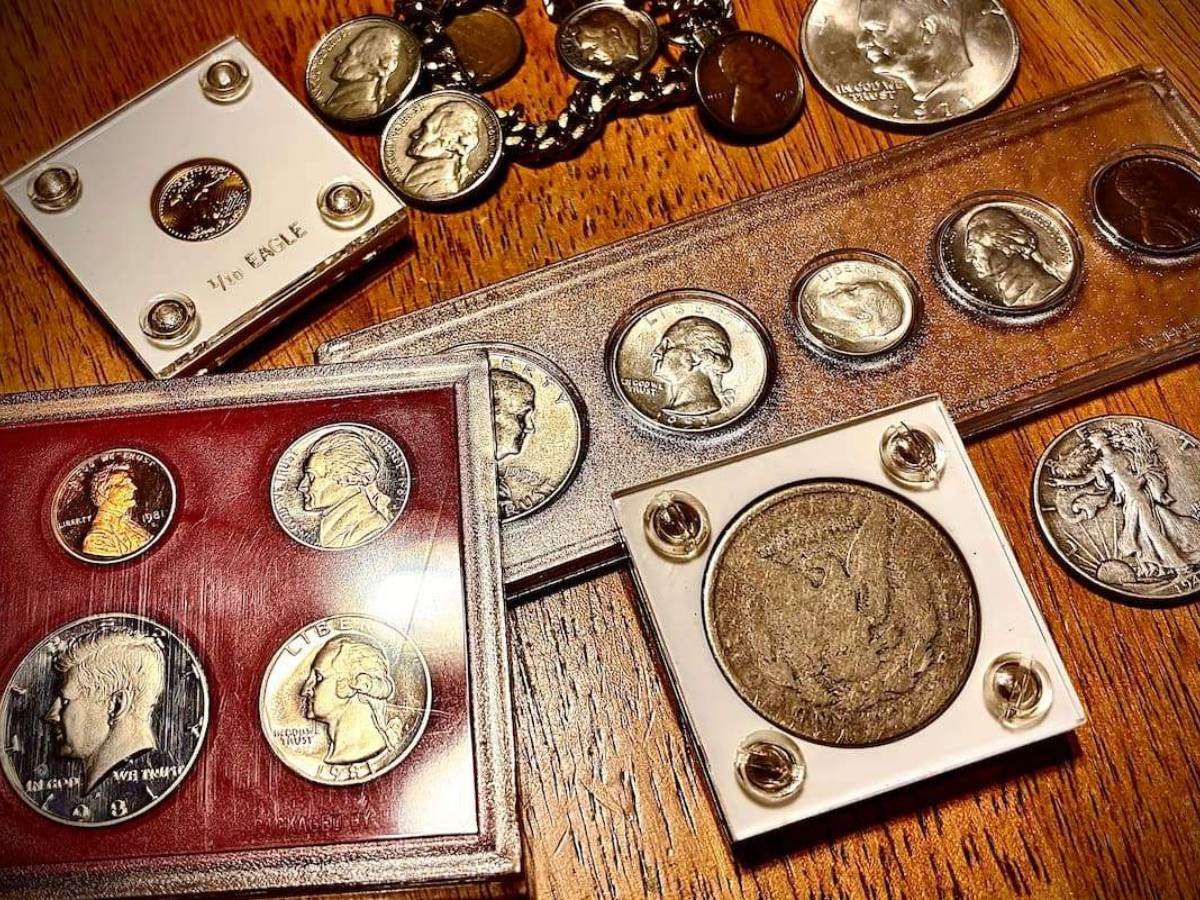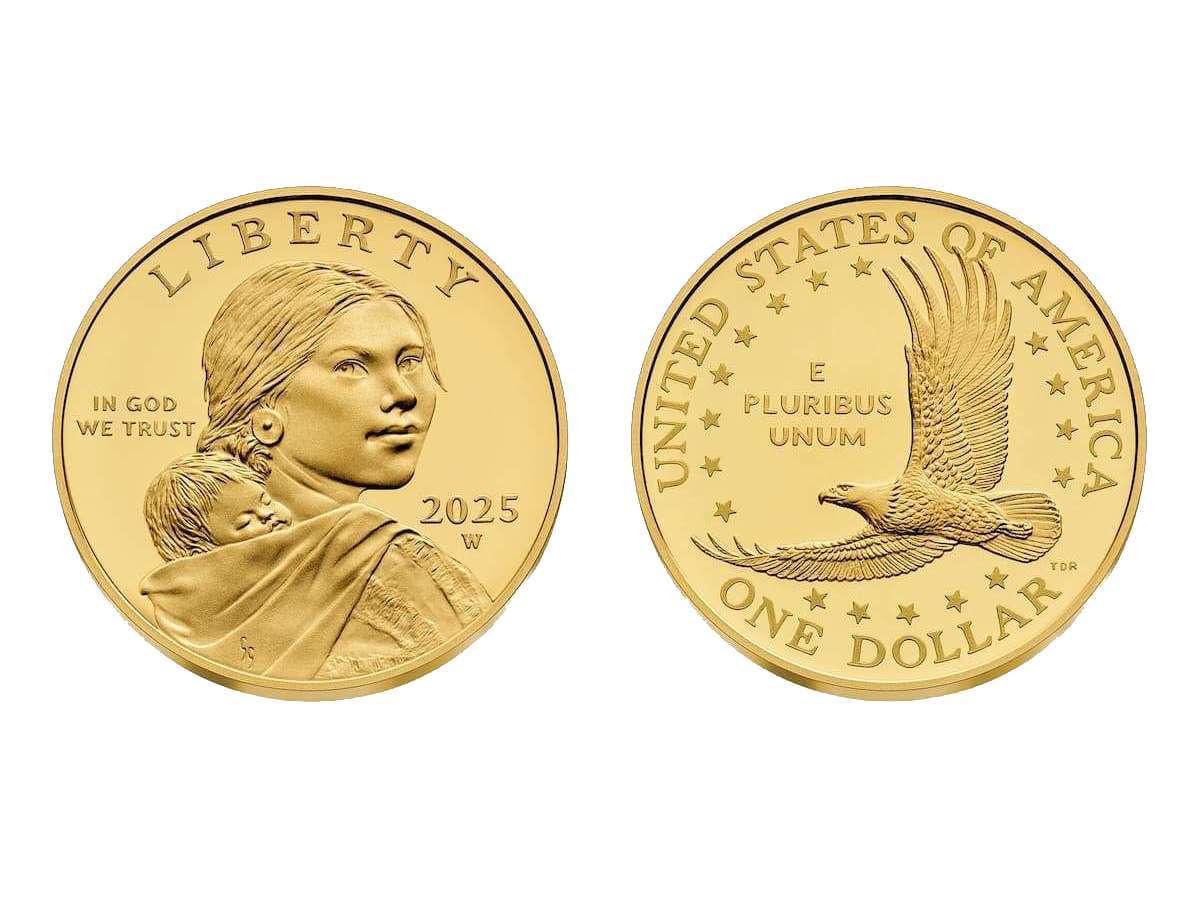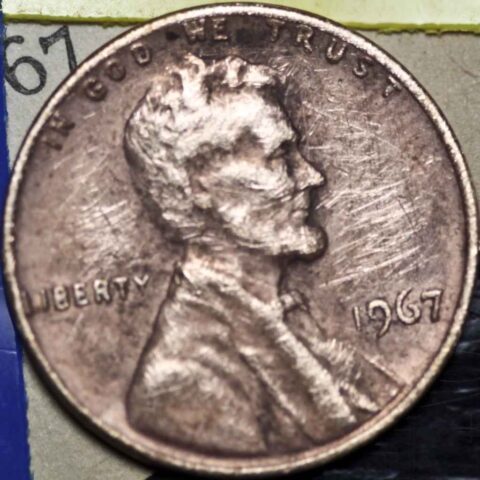
All 1967 pennies are worth more than face value — so check your change!
No hype, all fact…
There’s a reason your old 1967 pennies are valuable — and it’s not just because of their age or rarity.
The 1967 Lincoln cent is definitely worth looking for in your spare change. I’m going to tell you why.
Ready to find out how much your 1967 pennies are worth?…
NOTE: A major coin shortage caused the United States Mint to make several changes to the U.S. coin system beginning in 1965. Among the changes was the permanent elimination of circulating 90% silver coinage and the temporary removal of mintmarks from all U.S. coins. Also proof sets and uncirculated sets were placed on production hiatus from 1965 through 1967 and replaced during that time by Special Mint Sets (SMS).
1967 Penny Value Today
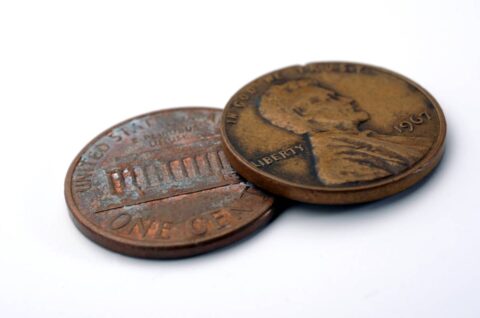
The 1967 Lincoln Memorial cent is an extremely common coin, with its mintage of 3,048,667,100. Yep, you read that correctly… That’s more than 3 billion (with a big ol’ “B”).
So, why then are all 1967 pennies worth more than face value if so many were made?
It’s because these old pennies contain a bronze composition made of 95% copper, 5% zinc. And since copper has gone up in value so much in recent years, the amount of copper in a 1967 penny is now worth about twice the coin’s face value — or a total of about 2 cents.
Sure, we’re not talking $50 or $100 here, but a coin that’s pretty much automatically worth at least twice its face value is worth looking for and keeping!
While worn 1967 pennies are worth around 2 cents each, uncirculated pieces (those never used as money) are worth closer to 10 to 20 cents apiece.
The most valuable 1967 penny was graded MS67RD by Professional Coin Grading Service (PCGS) and sold for $4,945 in a 2008 auction!
1967 SMS Penny Value
As mentioned earlier, the U.S. Mint produced a special kind of collectible coin product in 1967 known as the Special Mint Set (SMS).
The 1967 Special Mint Set contained 5 coins, including the 1967 SMS penny (along with similar versions of the 1967 nickel, dime, quarter, and half dollar).
These special 1967 Lincoln pennies also contain copper, but they’re more valuable for their special finish — a coin type that was produced in limited quantities. The U.S. Mint made just 1,863,344 SMS sets in 1967 — and thus only that many 1967 SMS pennies.
A typical 1967 SMS penny is worth around 50 cents to $1.
The most valuable 1967 SMS penny graded SP68RDDCAM by Professional Coin Grading Service sold for $5,581.25 in a 2014 auction!
IMPORTANT: What Is The Grade Of Your 1967 Penny?
To determine the true value of your 1967 Lincoln cent, you first need to know what condition (or grade) your coin is in.
Grab a coin magnifier and a copy of the U.S. Coin Grading Standards book. Then, watch this video to see how to grade coins yourself at home:
These coin grading apps make grading coins yourself much easier.
Rare 1967 Penny Errors… And Their Values
Ever wonder what those 1967 pennies that don’t look quite right are worth?
It’s easy to think (or maybe at least hope) that any 1967 penny that appears odd is some kind of valuable mint-made error or variety. But the unfortunate reality is that most of the strange 1967 pennies you find — why most of the odd coins you locate in general — are simply showing some type of post-mint damage or alteration.
Still, you should keep searching for those weird coins anyway. Some are actual errors and varieties — and many are worth some serious money!
What type of 1967 penny errors and varieties are worth a lot of money? Here are some that you should be looking for…
1967 Doubled Die Penny Error
Of all the errors and varieties we’re going to cover here, the one that most folks are probably hoping to find is the so-called doubled die — often incorrectly known as a “double die” to some people.
There are currently no known major 1967 doubled die pennies that have such drastic doubling — but there are still some really cool (and collectible!) 1967 doubled die pennies out there which show minor doubling. Most of these are rather obscure doubling errors that can be seen in the lettering and date.
Such doubled die errors on a 1967 penny may take $20 to $50 apiece, sometimes more — depending on the magnitude of the error and niche demand from collectors seeking these particular pieces.
1967 Die Crack / Die Break Penny Error
When a coin die gets near the end of its operating life or something suddenly causes damage to it, this wear and tear can result in cracks and breaks on the die. These aberrations, called die breaks or die cracks, show up as raised lines, squiggles, or bumps on the struck coin.
Values for die crack errors depend on the size and location of the die break, with the most common of these pieces taking $5 to $25.
The type of die crack also matters. Die cuds are one of the most valuable kinds — and these can be worth $100 to $150 or even more.
1967 BIE Penny Error
Another kind of die crack that’s unique to Lincoln cents is the BIE error.
“BIE” simply refers to the appearance of a capital letter “I” between the “B” and “E” of “LIBERTY” on the obverse (head’s side) of the Lincoln penny.
That unusual letter “I” is a small vertical die crack, and they tend to show up in just that spot across many years of the Lincoln cent series. In fact, there are Lincoln penny enthusiasts who try building entire date sets of BIE pennies — imagine that!
The BIE error may be rather common, but as you can see it’s highly collectible, too.
A typical 1967 BIE penny would be expected to trade hands for anywhere from $5 to $15 — depending on its condition.


